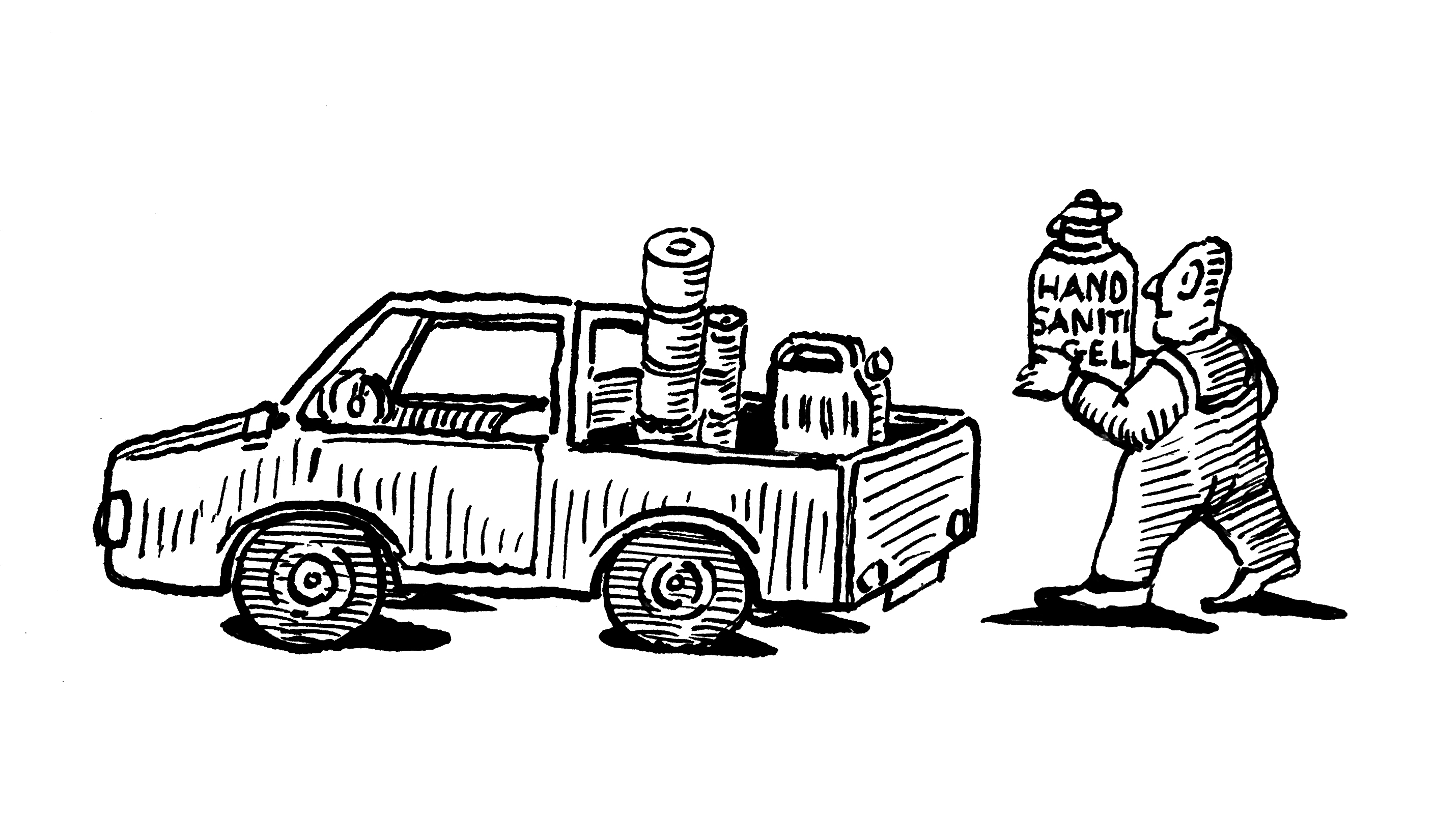ABOVE: © ISTOCK.COM, NADYA SO
As I penned this editorial in mid-May, the internet was abuzz with news and images of people in some parts of the US East Coast panic-buying large volumes of gasoline. The behavior was driven by the closure of the Colonial Pipeline, the largest petroleum artery in the US, after its operator was targeted by a ransomware attack perpetrated by Russian hackers. Although the pipeline was closed for less than a week, individuals filled both approved gasoline containers and improvised ones with gas in nervous anticipation of a dearth of the crucial resource.
Last year, in the early days of the COVID-19 pandemic, shoppers similarly rushed to hoard obscene amounts of toilet paper and cleaning products, their consumer drive shifted into high gear by a looming catastrophe. As COVID-19 swept through communities and workplaces, infecting tens and then hundreds of thousands around the world and killing thousands every day, high among citizens’ and retailers’ worries was that the pandemic would disrupt supply chains. History is littered with similar examples of panic buying, large and small. Humans have a tendency to gorge themselves on critical resources as crises approach, even if facts on the ground don’t necessarily warrant such panic.
What is it about our psychology that makes us vulnerable to such behavioral swings? Sadly, the scientific literature surrounding this phenomenon is somewhat lacking. Most of the papers that do address it were spawned by panic buying that resulted from the start of the COVID-19 pandemic. According to a review paper published in May of last year, four factors likely drive this impulse: the perception of a coming crisis and corresponding resource scarcity, fear of the unknown, coping behavior triggered by control deprivation, and social-psychological factors including social network dynamics.

While it is easy to deride as illogical the people seen in viral images stocking up on toilet paper, gasoline, or hand sanitizer, the urges undergirding this behavior are intimately familiar to anyone who has lived through the past 18 months. Ironically, it is panic buying that can break the very supply chains that are perceived to be imperiled by crises such as pandemics. In the COVID-19 era, there have been shortages of particular goods, and some businesses have suffered immensely due to the disruption the outbreak has wrought. But arguably, panic buying has been more central to breaking supply chains and causing some shortages than the actual disease spurring the disruptions.
As the authors of the aforementioned review suggest, better understanding of the biology behind panic buying “offers some implications for health professionals, policy makers, and retailers on implementing appropriate policies and strategies to manage panic buying.” Putting an end to this practice can help to insulate the supply chains that COVID-19 has revealed as more fragile than they should be.
Watching recent events unfold, another thought that occurred to me was how impressively some of the people navigating our new reality have avoided panic, maintaining a calm and focused course. One of these people is Nicola Petrosillo, this month’s Critic at Large. A veteran of infectious disease outbreaks—attending to patients in Italy during the SARS epidemic of the early 2000s and running an Ebola hospital in Nigeria as that viral scourge ravaged western Africa in the past decade—he has seemingly never wavered from a logical and scholarly approach. Even as Petrosillo, an infectious disease physician and researcher at Rome’s Lazzaro Spallanzani National Institute for Infectious Diseases, cared for COVID-19 patients last year and saw his hospital fill to bursting with sick and dying people, he retained his trust in science. In this issue, he writes about the utility of studying not only SARS-CoV-2 but also other coronaviruses that have sparked deadly outbreaks in order to get a more complete sense of how to end this pandemic and avoid the next one.
It’s this devotion to logic, even in the face of intense emotional turmoil, that I feel is key to steering humanity in the right direction now and in the future. Here’s hoping that we find a way, as a society, to make such calm reason widespread as we stare down crises that come our way.





